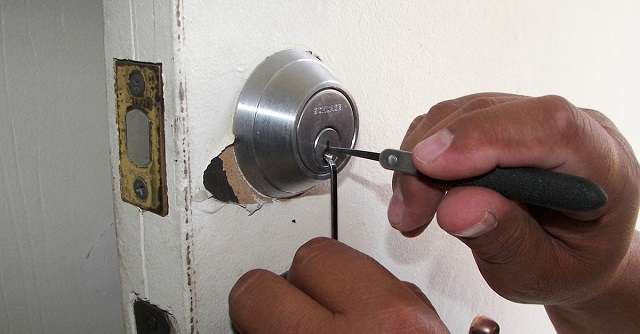Why Computer Hackers Like Picking Locks
2024-07-17 10:52

In the world of cyber security, the image of a hacker typically conjures up scenes of code-cracking and network breaches. However, a surprising number of hackers have a parallel interest in the art of lock picking. This seemingly disparate skill set aligns with the hacker mindset in intriguing ways. This article explores why computer hackers are drawn to picking locks, examining the cultural, psychological, and practical overlaps between these two disciplines.
The Hacker Ethos: Curiosity and Challenge
At the core of both hacking and lock picking is a profound curiosity and a desire to understand and manipulate systems. Hackers and lock pickers are motivated by the challenge of unraveling complex puzzles. This shared ethos is encapsulated in the hacker maxim, "If you can't open it, you don't own it."
Both hackers and lock pickers possess an insatiable curiosity about how things work. For hackers, this means delving into the intricacies of software and hardware systems. For lock pickers, it's about understanding the mechanics of locks and keys. This curiosity drives them to explore, experiment, and ultimately master their respective fields. The thrill of overcoming challenges is another common thread. Hackers enjoy the intellectual challenge of bypassing security measures, while lock pickers revel in the tactile challenge of manipulating lock components. Both activities provide a sense of accomplishment and mastery when a complex problem is solved.
Skill Overlap: Precision and Patience
While hacking and lock picking might seem fundamentally different, they share several key skills, including precision, patience, and problem-solving.
Precision: Both disciplines require a high degree of precision. Hackers must carefully write and execute code, paying attention to minute details that can make or break their success. Similarly, lock pickers must have a delicate touch to manipulate the small components of a lock without breaking it.
Patience: Patience is essential in both fields. Hackers often spend hours or even days trying different methods to break into a system. Lock pickers must also patiently fumble with the pins and tumblers of a lock, sometimes taking a long time to open a lock, and may even need to change several different lock picking tools in the process.
Both hackers and lock pickers are adept problem solvers. They must think creatively and adaptively to overcome the obstacles in their path. Whether it's deciphering encryption or unlocking a high-security padlock, the ability to analyze and address complex problems is crucial.
Cultural and Community Connections
The crossover between hacking and lock picking is also reflected in the communities and cultures that have developed around these activities. Many hacker conventions, such as DEF CON and HOPE, feature lock picking villages where attendees can learn and practice lock picking skills.
These gatherings provide a space for hackers to share knowledge, network, and collaborate. Lock picking villages at these events highlight the cultural connection between the two practices, emphasizing hands-on learning and the hacker ethos of sharing information.
Both hackers and lock pickers often belong to communities that value skill-sharing and mentorship. Online forums, local meetups, and workshops allow enthusiasts to learn from each other, share techniques, and celebrate their successes.
Practical Benefits: Physical Security Awareness
Understanding lock picking can also provide practical benefits for hackers, particularly in terms of physical security awareness. By learning how locks can be compromised, hackers gain insights into broader security principles that can be applied to both physical and digital realms.
Security Holistic View: Knowledge of lock picking reinforces the importance of a holistic approach to security. Just as a hacker might find a weak point in a software system, a lock picker identifies vulnerabilities in physical security. This dual awareness helps hackers develop a more comprehensive understanding of security.
Physical Penetration Testing: In the field of penetration testing, skills in both digital and physical security are invaluable. Penetration testers, or ethical hackers, are often tasked with assessing the security of an organization from all angles. Proficiency in lock picking allows them to evaluate physical entry points as well as digital ones, providing a more thorough assessment of security.
Conclusion
The affinity between computer hackers and lock picking is rooted in a shared mindset of curiosity, challenge, and problem-solving. Both activities require precision, patience, and a deep understanding of complex systems. By delving into the world of lock picking, hackers not only satisfy their intellectual curiosity but also gain valuable skills that complement their digital expertise. This blend of interests highlights the multifaceted nature of the hacker ethos and the continuous pursuit of knowledge and mastery.

 Like Us on Facebook to enjoy 5% discount
Like Us on Facebook to enjoy 5% discount